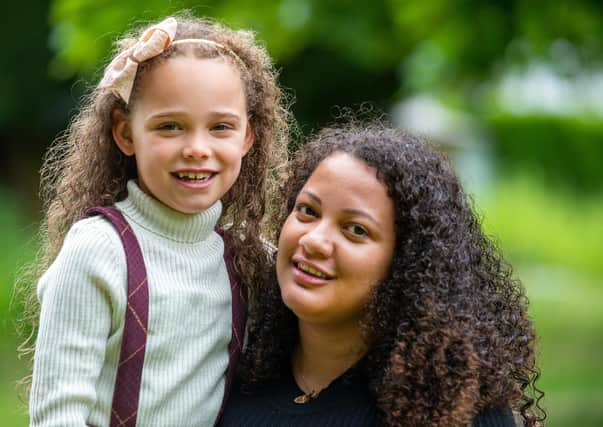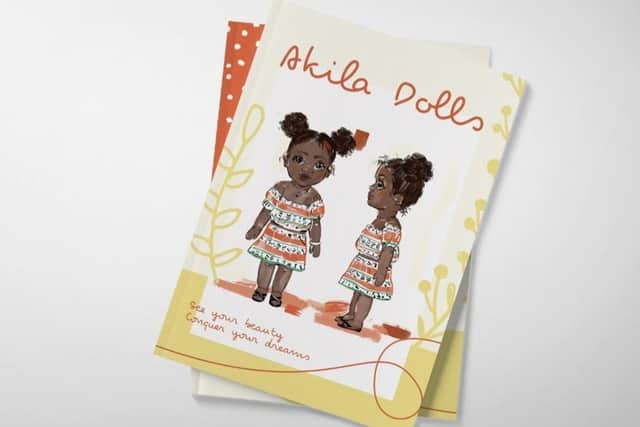Entrepreneur to create range of diverse dolls after autistic daughter spots a gap in the market


Olivia Thompson, a single parent who previously worked part time as a receptionist in a law firm in Leeds, has spent the last seven months working with designers and manufacturers to design the first toy, which she hopes will be the first in a long line of diverse and disability dolls under her new business name Akila Dolls.
She made the difficult decision to leave her day job following her daughter’s autism diagnosis last May. “It just got to the point where it was too much,” she said. “I was mentally and physically worn out and the doctor said to me, ‘you’re either going to end up breaking down or you’re going to be dead the way you’re going.”
Advertisement
Hide AdAdvertisement
Hide AdAfter leaving her job, Ms Thompson went toy shopping with her daughter, Amira, now seven, and said they both noticed the lack of diverse dolls on the shelves.


“I always felt growing up mixed race that there weren’t any dolls on the shelves that represented me but when Amira said to me: ‘Why don’t the toys look like us, mummy?’ I suddenly thought, why in 2020 is this still an issue?”
Ms Thompson started researching different types of dolls available online and then did her own market research and realised there was a huge gap in the market.
“I want to create dolls that are inclusive of all diversity. That goes for Caribbean, African, Hispanic, Indian, Chinese. You don’t see these represented on the high street,” she said.
Advertisement
Hide AdAdvertisement
Hide AdThe first doll is called Bessie, named after Bessie Coleman who became the first African-American female pilot in the 1920s.
“I wanted all the dolls to be named after inspiring historical figures,” Ms Thompson said. “A lot of thought and research has gone into designing the right look, the right hair and the right clothes.”
Looking ahead, she is keen to add disability dolls to the range, which is expected to retail at £35-£40 per doll. “There are some dolls out there, for example, a Barbie in a wheelchair but it’s not authentic,” she said.
“I’ll work closely with professionals and people with the disabilities themselves to get it right. I want dolls with prosthetic limbs, stoma bags, hearing aids, and other things that these children can identify with.”
Advertisement
Hide AdAdvertisement
Hide AdMs Thompson met a Job Centre adviser who suggested going to the Business and IP Centre at Leeds Central Library. From there she got in touch with a business mentor from Santander Bank, completed a financing course through the Princes Trust and found local illustrator, Buttercrumble, to design the dolls, which will be soft, like the popular Baby Annabell range. Another designer is creating unique fabrics for their clothes.
After designing the first doll, the packaging and the concept book, she now needs further funding to move the business forward. She has set up a crowdfunding page through Natwest which has raised nearly £500 so far. She needs to reach £6,000 by June 8.
“I’ve funded the business myself so far and I’m now at a stage where I’m ready to manufacture the prototype but I need to raise more capital,” she said.
The money will be used to manufacture the prototype in the UK, make the packaging and set up a website for selling the dolls.
To donate, visit https://natwestbackherbusiness.co.uk/akila-dolls
Comment Guidelines
National World encourages reader discussion on our stories. User feedback, insights and back-and-forth exchanges add a rich layer of context to reporting. Please review our Community Guidelines before commenting.